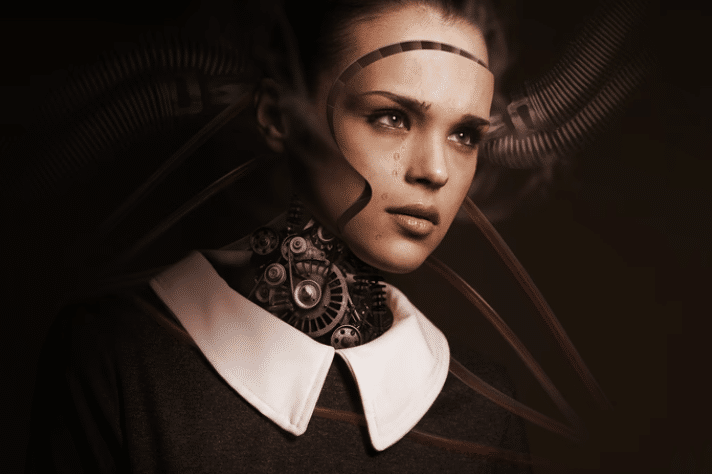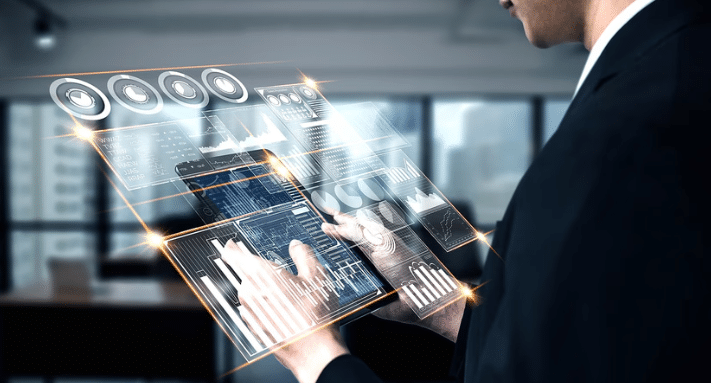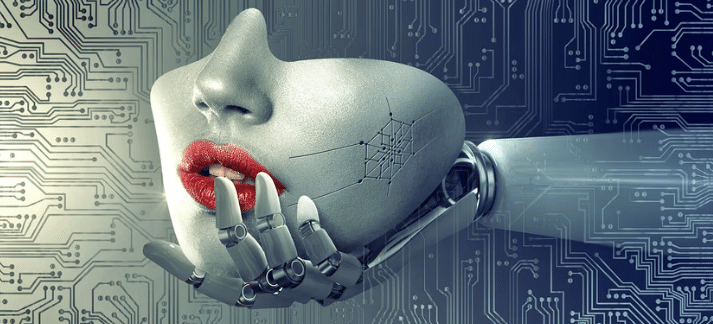Violation of property and intellectual rights is one of the fiercest wars to be waged without mercy. Direct aggression against assets, ideas and property has increased. Fears have been heightened in conjunction with the use of artificial intelligence in large areas of business and life, despite the positive feelings generated by the levels of protection provided by this revolution for royal and intellectual rights.
Property Rights and Artificial Intelligence

Under examination and scrutiny behind the data and information brought by AI and after ascertaining the exclusivity and non-violation; Overall satisfaction has blinded, but regrettably not long enough, privacy curves have changed and continue to do so; What has made this a concern for everyone, as a result of questioning the true owner of this exclusive data that AI claims is original!
Inevitably, neural networks based on deep education in artificial intelligence cannot actually generate data and information with authenticity; They totally lack creativity and innovation unless they are pre-programmed and trained, so the question from the real owner of these rights! The challenges for legal actors have increased specifically after the articles of the Law on the Protection of Property and Intellectual Rights were based on the fact that human beings are the real and sole owners of any innovation, invention or achievement, but artificial intelligence has created a wall of challenges to spark a huge wave of confusion.
This may be demonstrated by clarifying the deep concept of property rights; Which is referred to as all the innovations, achievements and inventions that bring a new benefit or an unprecedented way to humankind. The goal behind this is to encourage creativity and innovation in endeavours to share knowledge. The law’s application in protecting and preserving these achievements requires violation and encroachment in the case of artificial intelligence in the design of a video game; It will never be the real owner of it; Rather, whoever entered orders and instructions beforehand, it becomes confusing about the owner of the game.
Property Rights Laws Before Artificial Intelligence

It is self-evident that you do not entrust property rights to a machine at all! Do you think your computer will rise up one day and start inventing on its own while you cover in deep sleep! This is impossible to date, so despite AI’s prestigious place in human life; However, there is still a need for human manoeuvre and direction, and many States have therefore sought to grant property rights to the programmer or to give instructions and orders to the smart machine; In the event that the latter comes to an achievement worthy of intellectual protection and ownership.
This was reflected in the United States’ tendency to pass a law that if a computer or machine were to accomplish, the intellectual right was granted to those who trained it and to proceed with the arrangements and procedures for establishing the work, so man was the author of any AI output.
One of the most well-known examples of this context is the categorical rejection of all those responsible for the recognition of the DABUS AI system’s property and intellectual rights despite having two new inventions, given that the Queen of Creativity and Innovation is linked only to man; They are born of the human mind and the machine cannot invent it on its own.
It never went on in peace; It confused many legal and scientific circles as a result of their divergence, the rejection being based on the real protection, creativity and achievements of human ideas.
You may also like :
- Drawing and design through artificial intelligence
- How to make money from online for beginners 2024
- 5 Best Online Profit Sites for 2024
- Generating images and creative imagination: artificial intelligence as a tool for artistic creativity?
- Short videos: creative tool or addiction?
An outlook on artificial intelligence, property and intellectual rights
in drawing attention to the future that awaits artificial intelligence in the face of property and intellectual rights; It is still very unknown whether it can be granted a patent, innovation or anything else, but the positive aspect of the relationship between them; Artificial intelligence has been viewed as a very intelligent tool for safeguarding rights from violation and addressing any attempt to infringe them, because of its enormous ability to detect and stop royal and intellectual violations without the opportunity to use them illegally.
It is worth appreciating and praising that the algorithms on which AI is built are capable of efficiently lifting the curtain on any attempt to infringe intellectual property whether copyright Patents, or patents and also abuses of trademarks, in this sense, AI developers have made all their efforts and attention so that they can maintain their legal standing in preventing the violation of others’ rights at the intellectual and other levels.
Impact of artificial intelligence on patent law

AI integrates with patent law by working tirelessly to constantly develop algorithms to access more patents And there are many skills that can be used in this area, such as processing natural languages so that they can create a link between information and the document from which they have been extracted from patent documents, This is usually based on a variety of relevant concepts, keywords and clarification of the nature of the relationship between them.
The other destination for attention in creating a positive relationship between artificial intelligence and property rights is to learn the Machin Learning Machine, which is primarily to qualify and develop algorithms capable of detecting and identifying the patterns available in documents with all the finesse; This is to counter any attempt at violation, as well as its active role in assessing modernity.
Moving to deep learning, it is also an irreplaceable method that integrates its role with natural language learning by processing and recognizing it, but algorithms require tremendous training and massive programming for any robots or software to be able to extract relevant sentences and phrases and reveal the authenticity of the invention.
In conclusion, the impact of artificial intelligence on property and intellectual rights is more positive than negative, it is one of the smartest and most efficient ways to detect any attempt to violate or infringe rights, thereby reducing these problems as much as possible, but it will not come as easy as possible; The need for programming and training is very high.

